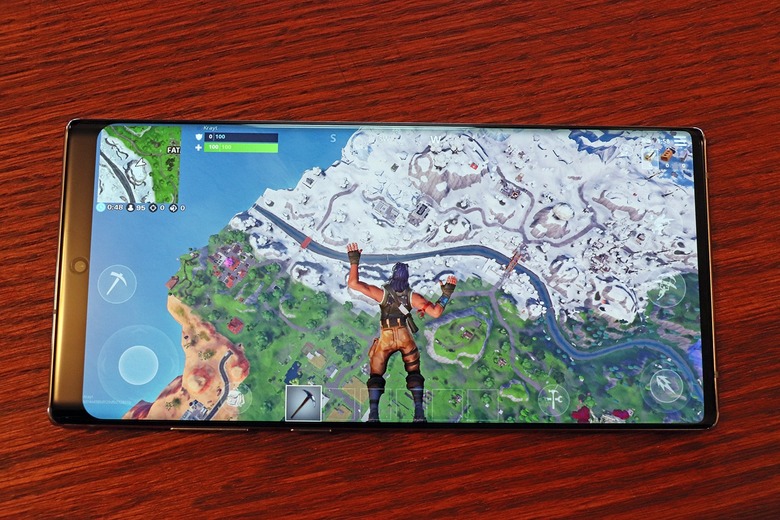Epic Loses Its First Fortnite Case Against Apple, But Unreal Engine Is Safe
- The first verdict in the Epic Games vs. Apple complex legal battle is bad news for Fortnite but good news for the Unreal Engine.
- The court said that Epic's Fortnite predicament is of its own making, as the game developer breached the contract with Apple.
- The judge sided with Epic when it comes to the Unreal Engine, saying that the entity that governs that product had not breached its contract with Apple.
The Epic Games vs. Apple lawsuit saga has moved to the next chapter, and the result of their first courtroom clash isn't surprising. Epic got the Fortnite loss it rightly deserves for the way it orchestrated this crisis, only to feign surprise when Apple started applying the punitive measures in response to Epic's breach of contractual obligations. Apple's win wasn't complete, as the judge presiding the case over Zoom on Monday sided with Epic on the Apple developer account that covers the Unreal Engine. Epic will have to comply with the App Store rules to bring Fortnite to the App Store, but at least it obtains a temporary restraining order (TRO) against Apple shutting down the Unreal account. The ruling only covers the immediate future, as the TRO needs to be replaced by a preliminary injunction. The next phase of the trial will take place in late September.
From the start of the hearing, Judge Yvonne Gonzalez Rogers made it clear that she was inclined to deny Epic's motion for a TRO against Apple for Fortnite, but grant it for Unreal Engine. The judge confirmed the verdict in a ruling that was issued after the hearing.
During the hearing, the judge pointed out that Epic acted disingenuously towards Apple when it comes to silently updating the Fortnite app to slip in a separate payment method. She told Epic's counsel that they "didn't tell Apple you had code in there [for an alternative payment system]." She added that "this was not an insignificant breach, hence the reason we are here."
The judge said in the ruling that Epic "has not yet demonstrated irreparable harm," and that the Fornite predicament "appears of its own making." The judge explained that Epic could choose to update the app to remove the alternative payment method and comply with Apple's rules as it continues its legal fight against the company. A decision not to fix the app and any injuries that result from that decision would be of Epic's own doing. "Epic Games admits that the technology exists to 'fix' the problem easily by deactivating the 'hotfix.'" the ruling reads. "That Epic Games would prefer not to litigate in that context does not mean that 'irreparable harm' exists."
The judge also explained that Epic's demand to use Apple's platform for free is unreasonable. "Epic Games moves this Court to allow it to access Apple's platform for free while it makes money on each purchase made on the same platform," the ruling reads. "While the Court anticipates experts will opine that Apple's 30 percent take is anti-competitive, the Court doubts that an expert would suggest a zero percent alternative. Not even Epic Games gives away its products for free."
Rogers also addressed the passionate gaming community, explaining that contracts between private parties need to be respected.
"With respect to the gaming requests, the Court recognizes based on the numerous internet postings and comments submitted in the record that Fortnite players are passionate supporters of the game, and eagerly anticipate its return to the iOS platform," the ruling reads. "The Court further recognizes that during these coronavirus pandemic (COVID-19) times, virtual escapes may assist in connecting people and providing a space that is otherwise unavailable. However, the showing is not sufficient to conclude that these considerations outweigh the general public interest in requiring private parties to adhere to their contractual agreements or in resolving business disputes through normal, albeit expedited proceedings."
The judge did side with Epic when it comes to the Unreal Engine, saying that the contract between Apple and the Epic Games entity that manages the Unreal Engine account was not breached. "Apple has chosen to act severely, and by doing so, has impacted non-parties, and a third-party developer ecosystem," the judge wrote. "The public context in which this injury arises differs significantly: not only has the underlying agreement not been breached, but the economy is in dire need of increasing avenues for creativity and innovation, not eliminating them. Epic Games and Apple are at liberty to litigate against each other, but their dispute should not create havoc to bystanders," the judge added. "Certainly, during the period of a temporary restraining order, the status quo in this regard should be maintained."
The judge said that the ruling is not a "slam dunk for Epic or Apple."
Epic has little choice of recourse for Fortnite as a result. It can reinstate the version of the app that would not violate the App Store rules, or stick it out for a few more weeks, and then potentially months, risking to anger some of its customers. As the judge explained, the Fortnite predicament is entirely of Epic's own doing. That does not mean Epic's antitrust lawsuit is without merit, or that Apple should not consider reducing its Apple tax across the board.
As for the Unreal Engine, while the TRO saved it, there's no telling what the preliminary injunction ruling will be. And Apple's decision to go after Epic as a whole, including its Unreal Engine side of the business, has scared off some developers who are jumping to Unity. That comes directly from Epic's laywers who said during the hearing that Unreal "will no longer be a usable engine. Developers are fleeing the Unreal Engine. It's happening now. It's not speculative."
